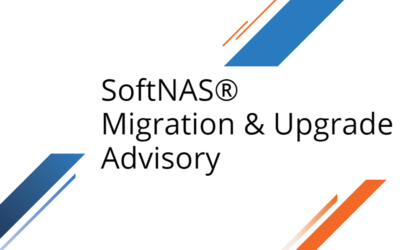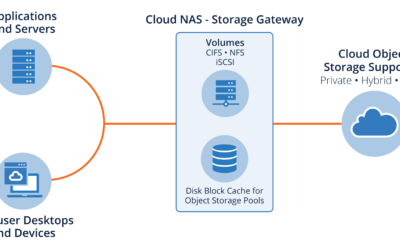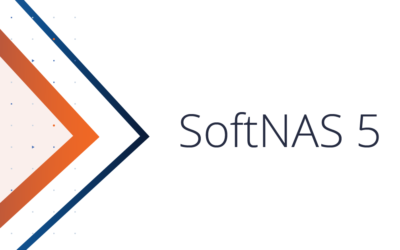Your datacenter NAS supports multiple client protocols, and we believe your cloud NAS should do the same. However, choosing the appropriate protocol will increase your performance.
Whether your applications are already in the cloud or you are still migrating to the cloud, you are likely supporting many operating systems and many workloads. SoftNAS delivers the broadest range of client protocols of any cloud NAS vendor by supporting NFS, CIFS, AFP, and iSCSI. Windows supports native CIFS, iSCSI, and POSIX support NFS. Likewise, Linux supports native NFS, iSCSI, and with an add-on CIFS.
The question is when to use what protocol for client and workload?
SoftNAS allows you to share storage as a Unified Filesystem (NFS and/or CIFS) or as a Block Device (iSCSI LUN).
NFS and CIFS Support
SoftNAS supports NFS and CIFS share for the same volume, which is a unified filesystem. Native protocols for both Windows and Linux clients allow access and update to the same files while preventing conflicts by providing unified file sharing and file locking.
Most data that resides on file shares is unstructured. NFS and CIFS volumes can use SoftNAS file-level optimizations such as compression, deduplication, and tiering. These optimization capabilities together can reduce the cloud block storage requirements and cost by 80%.
We were looking for a solution that could scale-up and was easy to deploy and use. SoftNAS Cloud has proved to be flexible and incorporates CIFS support along with other features that allow us to focus on our core business.
– Reza Kertadjaja, Chief Operating Officer IndonesianCloud
NFS and CIFS support clients and servers and are the preferred protocol for clients who need off-cloud access. For those who use Apple Mac in workgroups, AFP protocol is also available.
iSCSI Support
For block-level data transport, SoftNAS supports iSCSI. iSCSI is one of the more popular communications protocols in use today and is native in both Windows and Linux. For Windows, iSCSI also provides the advantage of looking like a local disk drive for applications that require use of local drive letters; e.g., SQL Server snapshots and HA clustered shared volumes.
For Windows and Linux servers that need dedicated connectivity with consistent speed for the most demanding workloads, SoftNAS recommends iSCSI.
With iSCSI server workloads such as file services, SoftNAS recommends deduplication and compression. However, with workloads such as SQL or NoSQL SoftNAS recommends disabling deduplication due to unnecessary overhead.
FTP and SFTP Support
Because SoftNAS is built upon a standard Linux operating system foundation, it also supports common file transfer protocols, such as FTP and SFTP. For certain use cases, these ubiquitous file transfer protocols can be advantageous.
Conclusion
With the broadest protocol support (NFS, CIFS, AFP, and iSCSI) and unified cloud storage in the industry, SoftNAS supports native protocols to clients for both SQL and unstructured data for even the most demanding workloads.







